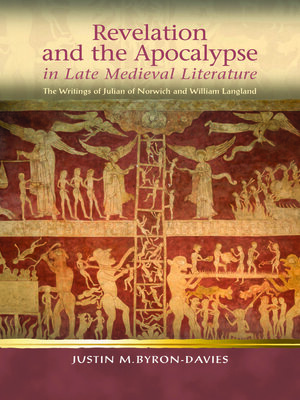Revelation and the Apocalypse in Late Medieval Literature
ebook ∣ The Writings of Julian of Norwich and William Langland · Religion and Culture In the Middle Ages
By Justin M. Byron-Davies

Sign up to save your library
With an OverDrive account, you can save your favorite libraries for at-a-glance information about availability. Find out more about OverDrive accounts.
Find this title in Libby, the library reading app by OverDrive.



Search for a digital library with this title
Title found at these libraries:
| Library Name | Distance |
|---|---|
| Loading... |
This interdisciplinary book breaks new ground by systematically examining ways in which two of the most important works of late medieval English literature – Julian of Norwich's Revelations of Love and William Langland's Piers Plowman – arose from engagement with the biblical Apocalypse and exegetical writings. The study contends that the exegetical approach to the Apocalypse is more extensive in Julian's Revelations and more sophisticated in Langland's Piers Plowman than previously thought, whether through a primary textual influence or a discernible Joachite influence. The author considers the implications of areas of confluence, which both writers reapply and emphasise – such as spiritual warfare and other salient thematic elements of the Apocalypse, gender issues, and Julian's explications of her vision of the soul as city of Christ and all believers (the fulcrum of her eschatologically-focused Aristotelian and Augustinian influenced pneumatology). The liberal soteriology implicit in Julian's 'Parable of the Lord and the Servant' is specifically explored in its Johannine and Scotistic Christological emphasis, the absent vision of hell, and the eschatological 'grete dede', vis-à-vis a possible critique of the prevalent hermeneutic.







